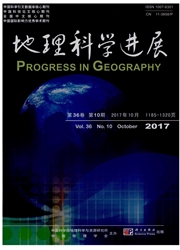

 中文摘要:
中文摘要:
尽管学术界至今未能形成一般性的外商直接投资(FDI)区位理论,但已有的大量研究却对加深理解FDI的区位选择规律做出了重要贡献。中国作为一个成功转型国家,在华FDI区位研究早已成为各界关注的热点问题之一。本文从区位理论和FDI理论两方面梳理FDI区位研究的理论基础后,回顾并评述了在华FDI区位研究进展,并提出了其未来发展中需要完善的相关命题。早期的研究以定性描述为主,从20世纪90年代中期开始转入利用计量经济模型对影响在华FDI区位选择的因素进行识别;研究主要集中在省区尺度,识别出的区位因子主要包括成本、市场、集聚和制度等。FDI在东道国的区位选择行为是"区域—产业—企业"共同作用的结果,在识别东道国区位要素的基础上,已有文献同时也关注了来源国效应、产业特征与企业属性和时间演化对FDI区位决策的影响。未来研究中需要加强对新兴经济体FDI区位模型的一般性讨论,强化"区域—产业—企业"系统研究,并关注基于功能视角的在华FDI(跨国公司)区位研究。
 英文摘要:
英文摘要:
Although there is still no general foreign direct investment (FDI) location theory, a large number of related studies do help deepen our understanding of this issue. Location theory and FDI theory are the two fundamental theoretical bases of FDI location research. China as a successful transition country, the issue about its FDI location choice had become a hot topic in many fields. This paper reviewed the features, methods, and contents of existing studies on FDI location in China. Qualitative description was the most important character of early studies. Since the mid-1990s, the research focuses were shifted to identify the factors which affected the FDI location decision using the econometric model. Existing studies mainly focused on provincial scale and i- dentified location factors included costs, markets, agglomeration, institution, etc. FDI location decision in host country is the interacted result of region-industry-enterprise factors, therefore there are other factors --including the country of origin, industry and enterprise characteristics, and the evolution factors-- work besides the host country's location factors. Finally, the paper put forward some questions deserving further research, including discussing the general location model in merging economies, strengthening region-industry-enterprise systematic research, and paying attention to the location of different functions of FDI in China.
 同期刊论文项目
同期刊论文项目
 同项目期刊论文
同项目期刊论文
 期刊信息
期刊信息
